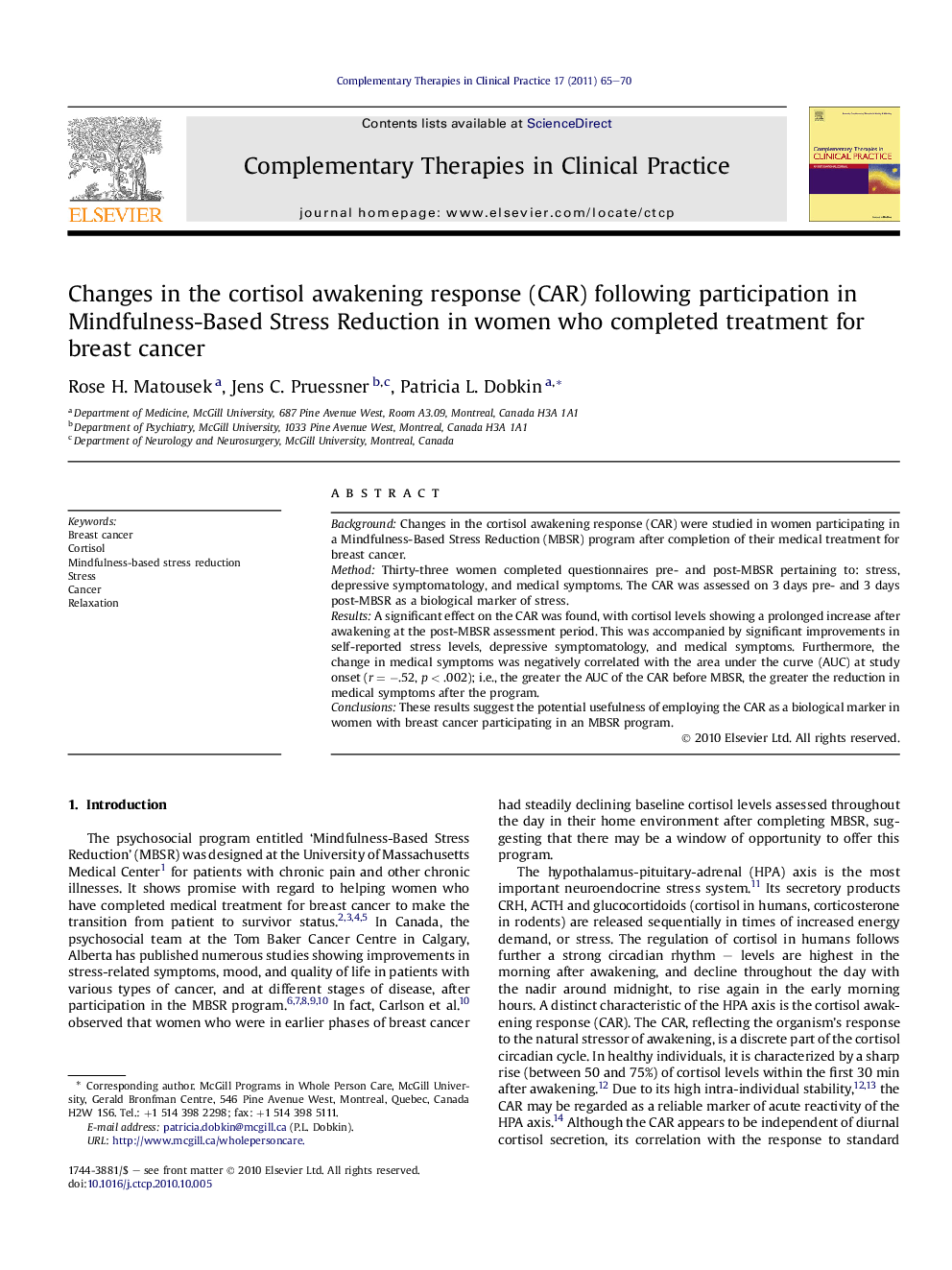| Article ID | Journal | Published Year | Pages | File Type |
|---|---|---|---|---|
| 2628673 | Complementary Therapies in Clinical Practice | 2011 | 6 Pages |
BackgroundChanges in the cortisol awakening response (CAR) were studied in women participating in a Mindfulness-Based Stress Reduction (MBSR) program after completion of their medical treatment for breast cancer.MethodThirty-three women completed questionnaires pre- and post-MBSR pertaining to: stress, depressive symptomatology, and medical symptoms. The CAR was assessed on 3 days pre- and 3 days post-MBSR as a biological marker of stress.ResultsA significant effect on the CAR was found, with cortisol levels showing a prolonged increase after awakening at the post-MBSR assessment period. This was accompanied by significant improvements in self-reported stress levels, depressive symptomatology, and medical symptoms. Furthermore, the change in medical symptoms was negatively correlated with the area under the curve (AUC) at study onset (r = −.52, p < .002); i.e., the greater the AUC of the CAR before MBSR, the greater the reduction in medical symptoms after the program.ConclusionsThese results suggest the potential usefulness of employing the CAR as a biological marker in women with breast cancer participating in an MBSR program.
